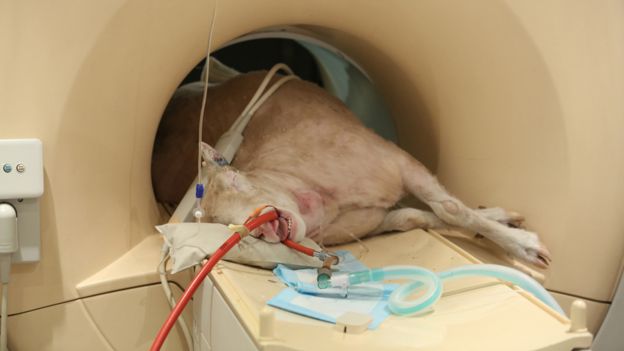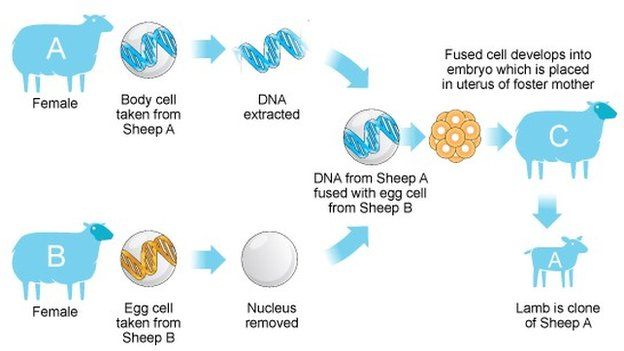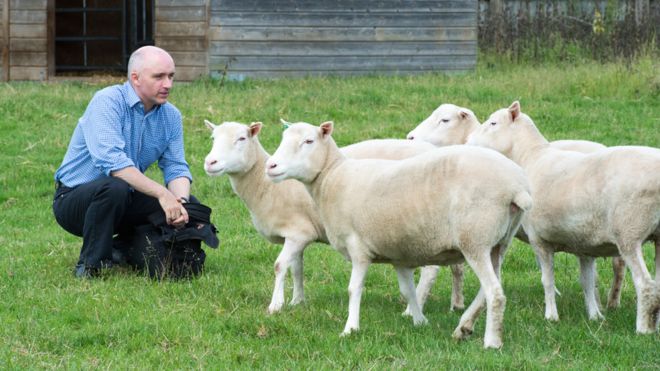Dolly the sheep's siblings 'healthy'
Dolly the sheep's "siblings" are
generally healthy, a study has shown, providing hope that cloning can
yield animals free from degenerative illness.
The first mammal to
be cloned from an adult cell - Dolly - died at the relatively young age
of 6.5 years, having suffered from osteoarthritis.This raised concerns that cloned animals might age more quickly.
But the new study, which tracked four sheep cloned from the same ewe as Dolly, found they had aged normally.
Some of the animals did show mild - and in one case moderate - signs of osteoarthritis. But the researchers say that it was not sufficiently severe that any of the animals required treatment.
Are cloned animals born old?
When she was born on 5 July 1996, Dolly was the first animal to be cloned from an adult cell using a technique known as somatic-cell nuclear transfer (SCNT).
Writing in Nature Communications, a team led by Prof Kevin Sinclair at Nottingham University reports that the sheep Debbie, Denise, Dianna and Daisy reached their eighth birthdays in good health.

The Nottingham team based their conclusions on examination of Dolly's four "sisters" and nine other cloned sheep - all between seven and nine years of age.
"Healthy ageing of SCNT clones has never been properly investigated," said Prof Sinclair.
"Following our detailed assessments of glucose tolerance, insulin sensitivity, blood pressure and musculoskeletal investigations we found that our clones, considering their age, were at the time of our research healthy."
The researchers performed a battery of tests, including assessments of the animals' bones, joints and muscles, along with blood pressure measurements. They then compared these to "control" sheep aged between five and six years old.
They found no major health issues: there was no sign of metabolic disease, such as diabetes, in the clones and their blood pressure was normal.
The evidence of mild osteoarthritis in the clones - and a moderate case of the disease in Debbie - could be a normal feature of sheep as they age, the researchers write in their scientific paper.
They point out that the age range of the cloned sheep, between seven and nine years, roughly corresponds to an age of 60 and 70 in human years.

But they will further assess the osteoarthritis question once the sheep die and post-mortem examinations can be carried out.
The effort to clone Dolly was led at the Roslin Institute in Edinburgh by Prof Sir Ian Wilmut, who later abandoned research on SCNT.
The late Prof Keith Campbell was instrumental in this pioneering work. In 1999, he joined The University of Nottingham where he continued his research in reproductive biology until his death in 2012.
The flock of cloned sheep are his legacy to the university.
source bbc news








No comments:
Post a Comment